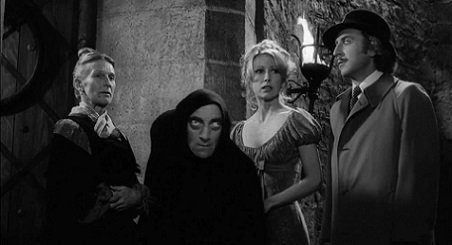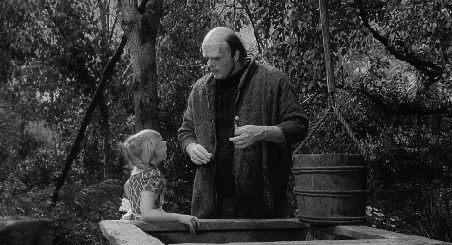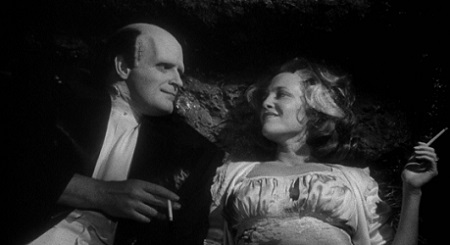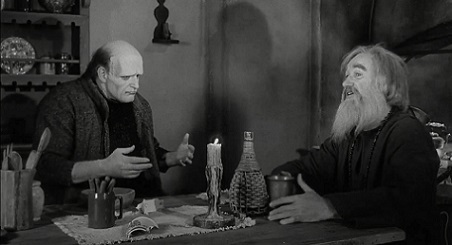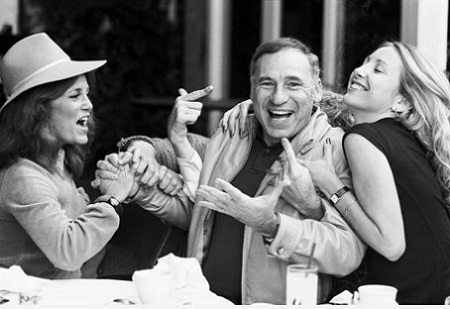Turning our attention today to a family comedy mixed with adventure, we look to the Mel Stuart directed movie Willy Wonka & the Chocolate Factory (1971). Based on the 1964 book Charlie and the Chocolate Factory by British writer Roald Dahl, this movie predated the movie Charlie and the Chocolate Factory (2005), which Matt Lynn Digital reviewed in November of 2021. Dahl received screenwriting credit for the 1971 film, though not the 2005 film.

The Willy Wonka & the Chocolate Factory movie opens with an extended pair of themes to begin the story. The first theme is to introduce a clear fascination with and fondness for chocolate. The aim with this theme is to offer a clear sense of mystery and magic for the man, Willy Wonka, and the chocolate factory that he runs. Building an eagerness to tour the factory and see the magic, and thus the man, foreshadows much of the movies second and main movement of action within the factory. The introduction of the candy store with Bill singing, as portrayed by Aubrey Woods, plays a substantial part in this. The role of teacher Mr. Turkentine, as portrayed by David Battley, furthers this theme while reinforcing the second introductory movie theme.

The second theme is that the Charlie Bucket and his family have been experiencing difficult financial times. Mrs. Bucket, as portrayed by Diana Sowle, works long hours working to keep the family of four grandparents, herself and young Charlie Bucket afloat. Peter Ostrum portrays the young Charlie Bucket, a dreamer dedicated to his family through work, sacrifice and the family’s dinners of cabbage water. Meanwhile, the four grandparents are bedridden as Charlie dreams of getting the golden ticket into touring Willy Wonka’s factory. The four grandparents were portrayed by Franziska Liebing as Grandma Josephine, Dora Altmann as Grandma Georgina, Ernst Ziegler as Grandpa George and Jack Albertson as Grandpa Joe.

The two themes comingle together as some recognize and aim to gently encourage Charlie’s dreaming while recognizing the difficulties. The song Mrs. Bucket sings of Charlie’s dreaming is touching. The introduction of Arthur Slugworth, as portrayed by Günter Meisner, into the anticipation leading into the larger messaging of the movie, is cleverly sweet when considering the prominence of chocolate and a chocolate factory in the movie’s worldview.
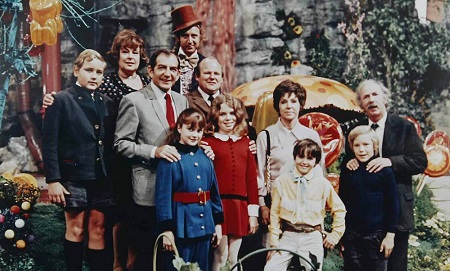
The magic of the movie’s unfolding, honestly, commences with the arrival at the chocolate factory. The introductory scene with Willy Wonka establishes a tone for what is to come. The additional touch of building such anticipation for the role of Wonka, as portrayed by Gene Wilder, did credit to the role while also amplifying the emphasis of the philosophical messaging the movie would offer. Introducing the helpers known as the Oompa Loompas, that we knew were aids for Wonka from the point we met them, was a nice touch. The artistry of the sets, the story, the messaging within the factory and, ultimately, the testing and life lessons as delivered were magic. Whether Wilder successfully nailed the delivery of the song Pure Imagination is perhaps the biggest question that I have for the movie given the degree to which I enjoyed both.

The sequence of introducing the magic within the chocolate factory was presented as a sign of love that Willy Wonka hoped to bestow. This object was hinted at throughout the movie, though to discern this early within a person’s first viewing of the movie is truly a too much to ask of a viewer. That the subtlety of the message, delivered not until the movie’s conclusion and among at least four other life lessons for parents and children, is part of the strength many see with this film.

There is a charm to the way that Mel Stuart interpreted the Roald Dahl book Charlie and the Chocolate Factory. The movie spoke to a different audience than the movie that followed 34-years later; thus, it feels appropriate to judge the films with an awareness that each film meant to do different things for the actors and the means through which the director meant to connect with the audience. Each film struck me differently for its own merits, with the comments for young families feeling appropriate to each. That I still enjoy the Mel Stuart directed Willy Wonka & the Chocolate Factory should be inferred by my granting the experience 4.25-stars on a scale of 1-to-5.
Matt – Wednesday, September 28, 2022


